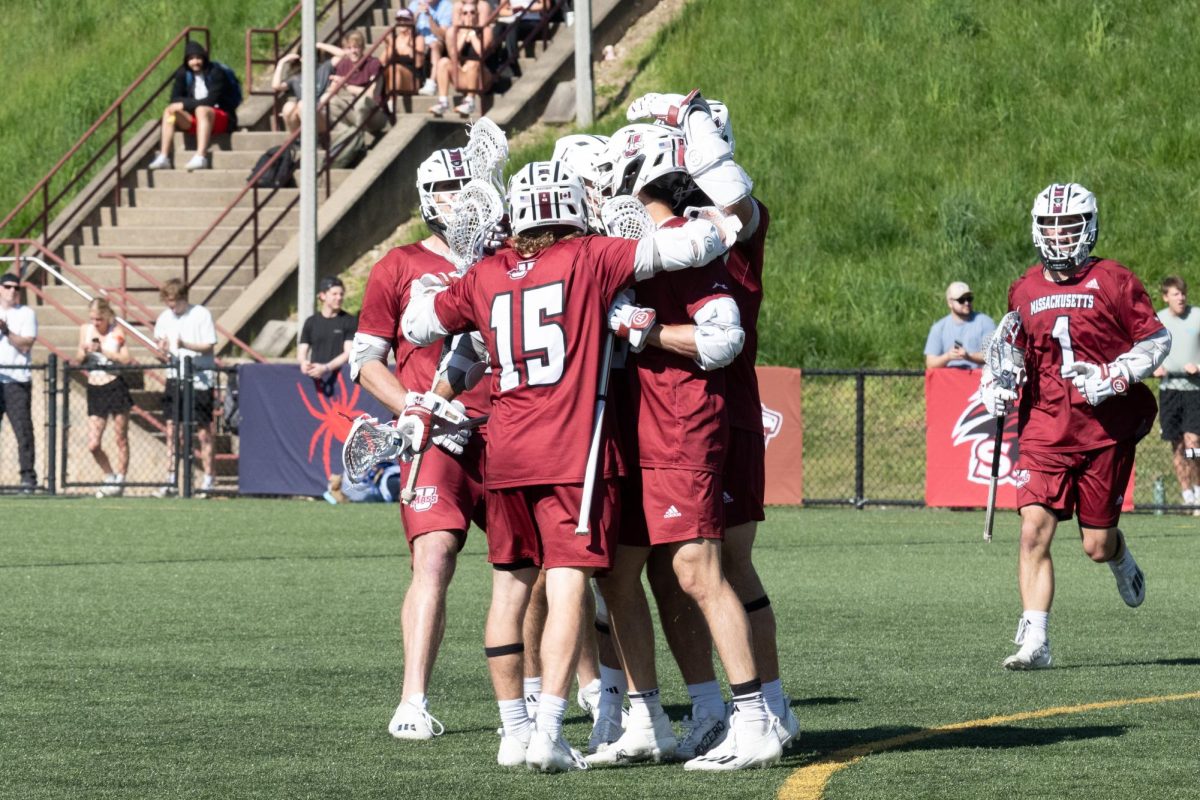Last week, the Black Student Union dug deep into a word that excludes and bonds people together.
In the Kennedy tower, attendees made their way to “Real Talk: The n-word.” This forum allowed attendees to voice their opinions and experiences about who, when and why should people use this word.
Getting off the elevator on the 19th floor of Kennedy, anyone could hear the music down the hall as the song “Sucka nigga,” by the hip-hop group “A Tribe Called Quest,” played. Casimir Maziarz, the event coordinator for BSU, welcomed the attendees, and told them, “This is real talk, keep it real and don’t hold anything back.”
Prior to the discussion, Casimir Maziarz showed a video of the interviews he conducted, questioning University of Massachusetts students how they felt about the n-word. After the interviews, Maziarz also showed an episode from “Boondocks,” a show that airs on the Cartoon Network.
As the attendees laughed after watching the clip, Casimir used the episode as a foundation, asking the attendees, “Why is the n-word being used so much?”
“Rap,” said a student from the back. And the deliberations began.
Attendees discussed that the word has become very mainstream in the media, in part because of hip-hop and rap music, saying that it has become part of everyone’s vocabulary.
Jimmy Destin, a junior majoring in legal studies and communication, disagreed with this claim.
“I feel that it is far too convenient to just blame hip-hop and rap music,” he said. “The word is transcending to the media like ‘Boondocks.'”
The forum was torn between the attendees who expressed that the n-word at the core is a derogatory word for African-Americans and the others who believed that the n-word can be expressed in a positive way.
The students who felt the word still carried remnants of the oppressive history their ancestors endured believed the word should not be used.
“My grandmother would punch me dead in the face if she ever heard me say that; she did the marches and the boycotting,” said Shanell Saunders, a junior. “It is disrespectful to her.”
“When you call yourself a nigga, you don’t use it in an intellectual, educational, positive way. There just has to be a conscious thought to take it out of the vocabulary,” said Emanuel Adhanom, a senior at UMass majoring in electrical engineering. The attendees expressed that the n-word can be said in a positive manner, depending on the context that is used.
“I do believe that there is a difference between nigger and nigga; the word was used in a negative light and we flipped it,” said Octavia Farquharson, a freshman majoring in communications at UMass.
Mohamed, the secretary for BSU, asked the attendees, “Are only black people niggas?” His question brought mixed feelings as some students claimed to be tolerant in allowing people to use the word.
“How are you going to change the meaning of a word if only one group of people can use the word? Then you are not really changing the meaning,” said Jessie Brown-Martin, a senior double majoring in legal studies and African-American studies.
“Why do black people get so offended when other races say it?” said Kenisha Jackson. “You take it to the heart when a white person says it, but if you were Spanish or Asian, it would be okay.” Other students expressed their discomfort toward someone who is not African-American using the word.
“I always felt like, if I ever hear anybody say it that’s not black, I just like freeze, I don’t care if you are Asian or Spanish,” said Destin.
Students discussed how the shade of skin color matters in determining who can say the n-word.
“I know plenty of darker-skinned Dominicans that use it, but it doesn’t get on my nerves, but when I hear a light-skinned Dominican with straighter hair [say it], it pisses me off,” said Maziarz.
The attendees agreed that, to some degree, skin tone is considered.
“In many countries it doesn’t matter what race, is what you look like. You get privilege on the whiteness of your skin,” said Kelly Lough, the resident director in Kennedy.
Maziarz directed the attention to the television screen where a picture of the rapper Nas’ new album, titled “Nigger,” was displayed. Reactions varied amongst the attendees.
“The name of the album totally like disgusted me, I think that’s the worst idea he could have ever had; I heard his rationalizing behind it, but truthfully, I feel like it’s just for shock value,” Destin said.
Brandon Scamfer, a senior majoring in hotel and casino management, set up a scenario of him going to the record store and asking for the new Nas album. “I’m white as they get, you hear me in there saying that word right there with a ‘er’ no ‘na,'” said Scamfer. The attendees laughed at the scenario but realized that this situation can be misunderstood.
“For me, the day that white people can freely use this word is the day that the ’60s and the whole entire thing is forgotten,” said Scamfer. Gisel Saillant can be reached at [email protected].






